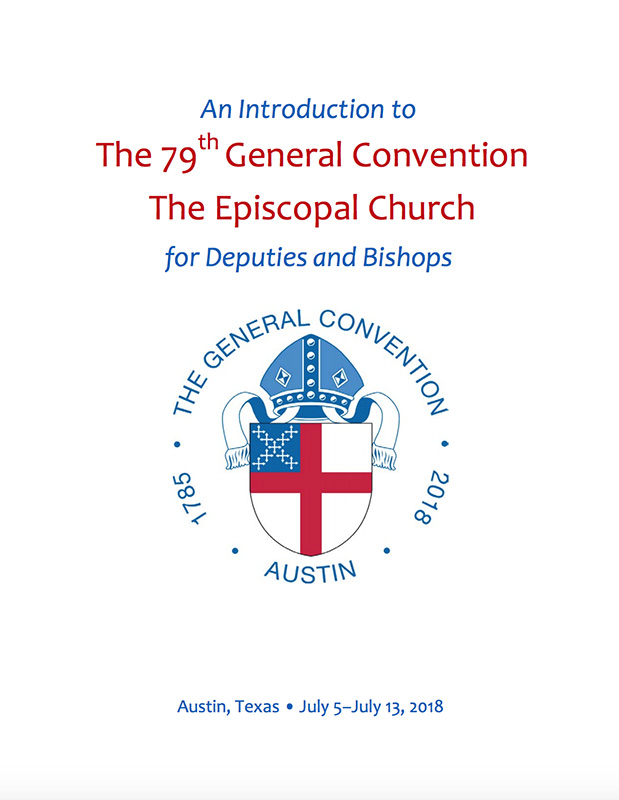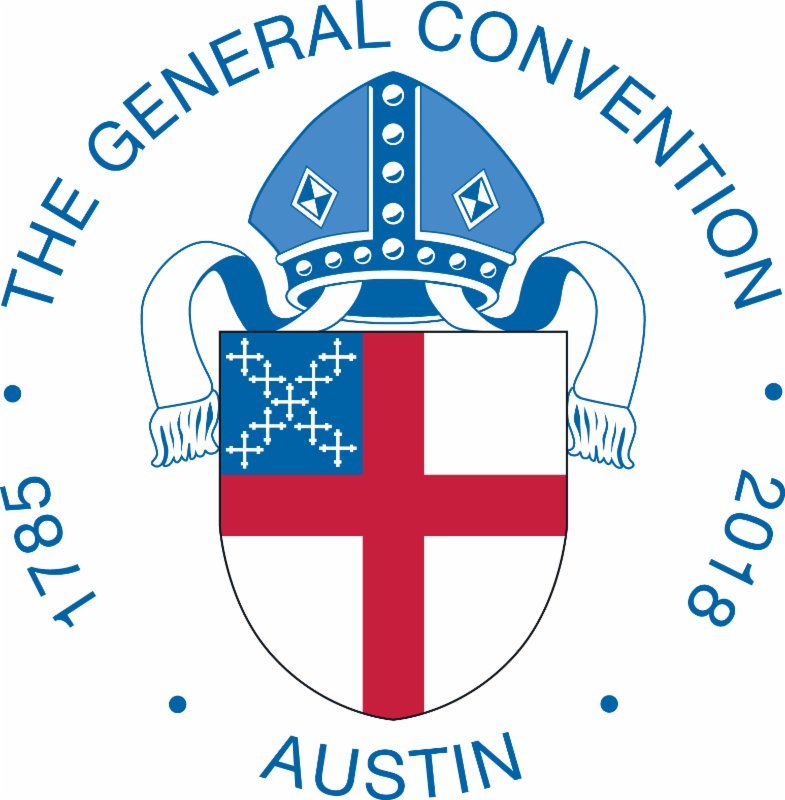 Committee 13, the Committee which received two resolutions from the Standing Commission on Liturgy and Music offering two different paths forward with regards to Prayer Book revision. A068, if passed, would initiate a process of Prayer Book revision following this Convention; the process envisioned would take four triennia and cost a total of approximately $8 million. A069 would initiate a process of deeper engagement with the current Prayer Book, a process of studying what is really happening on the ground with regards to worship in our congregations, and a process of translating the Book of Common Prayer into French, Spanish, and Creole this triennium, costing around $1.2 million. Committee 13 decided to send an amended version of A068 forward to the House of Deputies, not A069.
Committee 13, the Committee which received two resolutions from the Standing Commission on Liturgy and Music offering two different paths forward with regards to Prayer Book revision. A068, if passed, would initiate a process of Prayer Book revision following this Convention; the process envisioned would take four triennia and cost a total of approximately $8 million. A069 would initiate a process of deeper engagement with the current Prayer Book, a process of studying what is really happening on the ground with regards to worship in our congregations, and a process of translating the Book of Common Prayer into French, Spanish, and Creole this triennium, costing around $1.2 million. Committee 13 decided to send an amended version of A068 forward to the House of Deputies, not A069.
On Friday afternoon, the House of Deputies held a special legislative session to consider the committee’s version of A068. Before the legislative session, our Deputation decided to offer an amendment to A068. This amendment would have have essentially gutted the revision plan and replaced it with the plan described in A069, which had died in Legislative Committee 13.
Why the amendment?
A068 does not address the serious issue of inadequate translations of the Book of Common Prayer, which we see as an injustice that needs to be corrected before a comprehensive revision of the Prayer Book should proceed. For the revision of the 1979 Book of Common Prayer to fully involve all the language groups in the Episcopal Church, excellent translations of the current text must first be provided. The price tag attached to A068 does not include funding for translations of the current Prayer Book. If we approve this plan along with another resolution to translate the current Book of Common Prayer into Spanish, French, and Creole that will cost an additional $201,000. It will also mean that translations are rendered obsolete almost as soon as they are completed, therefore, these language groups and their experiences with the 1979 Prayer Book will have a more limited influence on the revision.
This amendment would provide time and resources for studying what is really happening on the ground with regards to worship in our congregations. We don’t have this data. We only have anecdotal evidence about how the current Prayer Book is being used or, where it isn’t being used, what other texts are used. Initiating a comprehensive revision before gathering this data, seems like putting the cart before the horse. Our amendment offers a slower path, one that prioritizes correcting the serious translation oversight, a correction that is long over-due, and one that allows us to study how worship is being experienced in all our parishes now, before initiating a comprehensive change.
So, what happened in the House of Deputies today?
After an hour of debate, with many deputies still in the queue to speak, thirty minutes was added to Saturday’s schedule to continue the discussion. Some significant amendments were made to to the resolution during Saturday morning’s session. However, unfortunately, despite our best efforts, the President of the House of Deputies did not call on either of two deputies from Georgia who had entered the queue to present our amendment. Attempts made to extend the discussion failed. The vote was taken and a slightly amended version of A068 passed the House of Deputies.
What does that mean?
What happens now? Now the version of A068 that passed the House of Deputies goes to the House of Bishops. Bishop Benhase has already pre-filed the same amendment that the Georgia Deputation had prepared, which he will present and argue for in the House of Bishops. The amendment will be discussed in the House of Bishops. Other amendments may and likely will be offered. We cannot say anything for sure, except that if the Bishops do pass A068 with any amendments, the amended version will be sent back to the House of Deputies for another vote. In other words, whether or not this Convention calls for a revision of the Book of Common Prayer remains uncertain.
What if it passes?
While I personally do not believe the time is right for a revision of the Book of Common Prayer, I did have a hand in writing both A068 and A069 on the Standing Commission on Liturgy and Music. As a member of the subcommittee for developing the process for Prayer Book revision, I was one of the drafters of both of these plans. If revision of the Book of Common Prayer is passed by this convention, it will follow the process outlined in the SCLM’s Report to the 79th General Convention. This process it outlines is not a hasty one; it is slow, measured, and requires a high degree of consultation with diverse groups in our Church, other provinces of the Anglican Communion, and multiple means of gathering feedback from those who try out trial liturgies.
The plan begins with three years of study. At the conclusion of the first triennium there will be no new liturgies to consider; rather, we will have data to report on to state of worship in this Church and the perceived needs for revision. At that point, the 80th General Convention will have to decide whether or not to continue with the revision. Part of how the willingness to proceed will be indicated will be whether or not they vote to fund the next triennial phase of the process. Therefore, the initiation of a revision process does not lock us into the continuation and completion of the process. The 72nd General Convention (in 1997) asked the SCLM to prepare a plan for Prayer Book revision. 73rd General Convention (in 2000) passed that plan. But, as it moved forward, it lost funding. In the absence of funding, the work shifted away from the preparation of trial use liturgies for a new Book of Common Prayer into supplemental liturgies. A revision plan like A068 will require the continued resolve and funding of several successive Conventions.
 As our blog post yesterday noted, the work of the General Convention begins with an open hearing for each resolution giving not only deputies to convention, but anyone in attendance, the opportunity to speak to the matter under consideration. The Rev. Cynthia Taylor shares here the text of her testimony on resolution D016 which seeks to “authorize the establishment of a Task Force for Women, Truth, and Reconciliation for the purpose of helping the Church engage in truth-telling, confession, and reconciliation regarding gender-based discrimination, harassment, and violence against women and girls in all their forms by those in power in the Church.” The full text of that resolution is online here:
As our blog post yesterday noted, the work of the General Convention begins with an open hearing for each resolution giving not only deputies to convention, but anyone in attendance, the opportunity to speak to the matter under consideration. The Rev. Cynthia Taylor shares here the text of her testimony on resolution D016 which seeks to “authorize the establishment of a Task Force for Women, Truth, and Reconciliation for the purpose of helping the Church engage in truth-telling, confession, and reconciliation regarding gender-based discrimination, harassment, and violence against women and girls in all their forms by those in power in the Church.” The full text of that resolution is online here:  The 79th General Convention officially opened today with an inspiring sermon by Presiding Bishop Michael Curry calling each Episcopalian to
The 79th General Convention officially opened today with an inspiring sermon by Presiding Bishop Michael Curry calling each Episcopalian to  The first option would call for a decision by the 2018 General Convention to begin the revision process at once, by gathering “data, resources, and ideas, and then set up the structure to begin drafting immediately after 2021 General Convention.”
The first option would call for a decision by the 2018 General Convention to begin the revision process at once, by gathering “data, resources, and ideas, and then set up the structure to begin drafting immediately after 2021 General Convention.”

